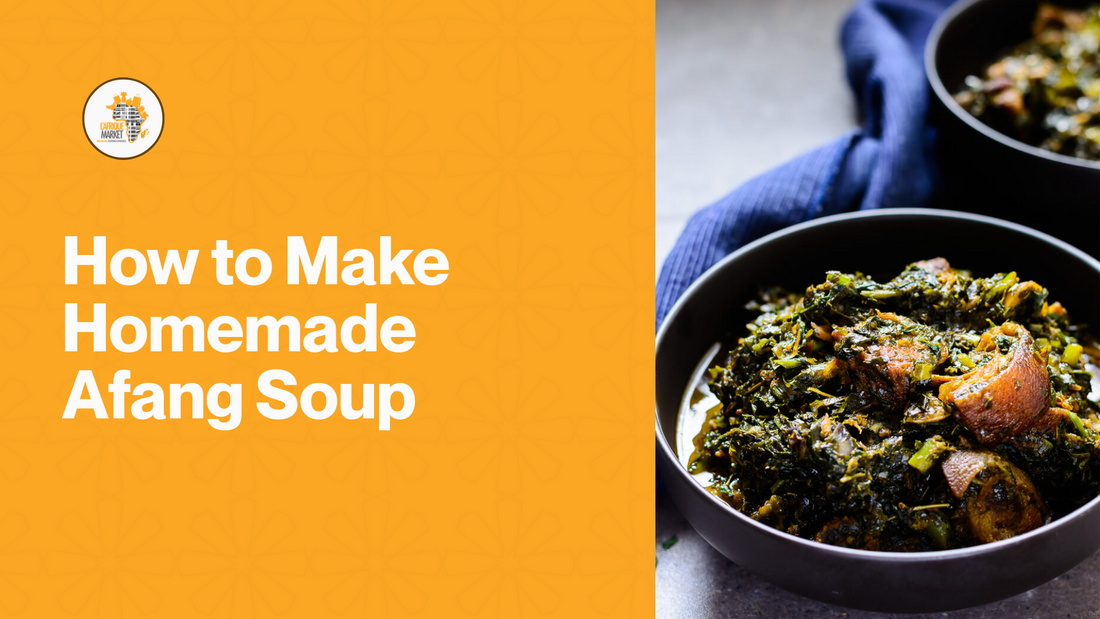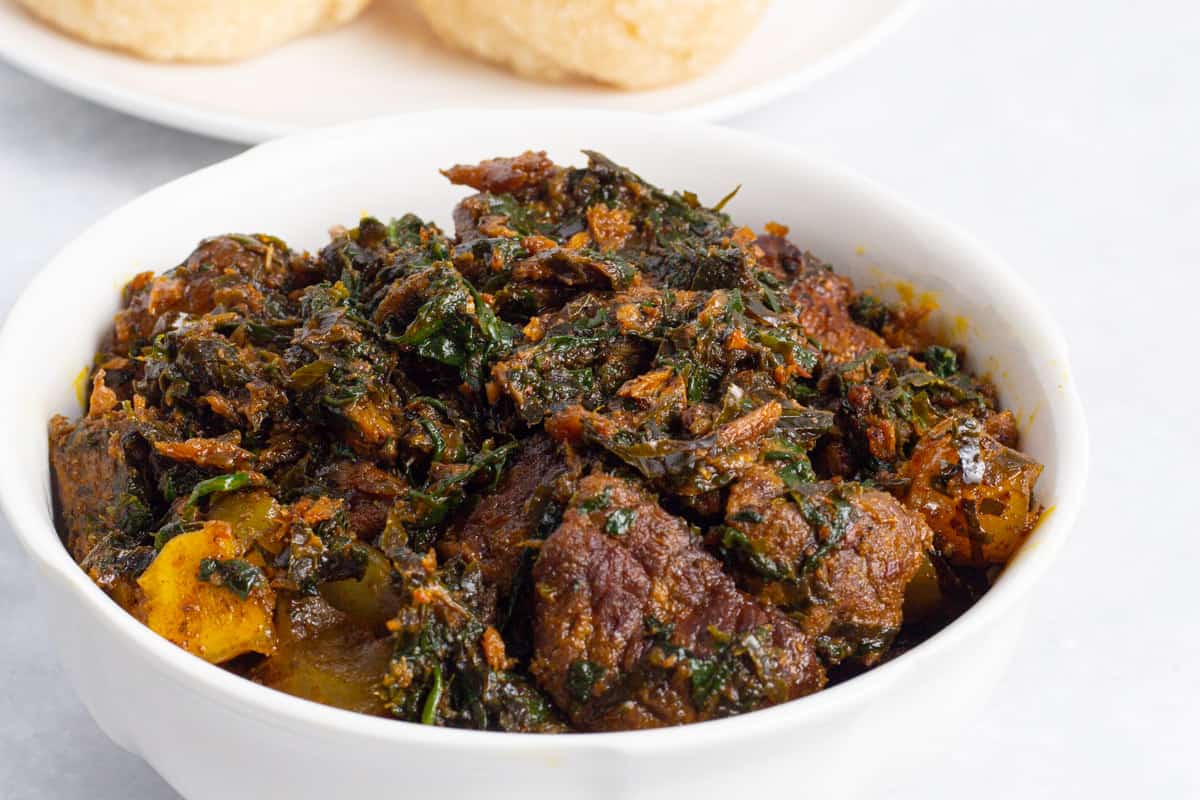
How to Make Homemade Afang Soup
Share
Afang Soup is a prized dish from the lush rainforests of southern Nigeria, famed for its vibrant green color, deeply traditional flavor, and impressive nutritional profile. Originating with the Efik people of Cross River State and shared by the Ibibio of Akwa Ibom, Afang Soup is more than food—it’s a cultural emblem celebrated in kitchens and at festivities across southern Nigeria.
The Origin and Cultural Significance
Afang Soup traces its roots to the Efik and Ibibio people. It’s a cultural centerpiece, featured at weddings, festivals, and family gatherings. The soup’s popularity spread beyond its homeland, now loved nationwide and representing southern Nigeria’s rich heritage and hospitality. What truly makes it special is the use of afang leaves (also called okazi or Gnetum africanum) and waterleaf—two indigenous greens, traditionally pounded and mixed for a signature taste.

Also read: How to Make Ghana Groundnut Soup: Step-by-Step Guide
Nutritional Value
Afang Soup is celebrated for its nutrition:
- Calories: About 336 per cup
- Protein: 14g per serving—excellent for repairing and building body tissue
- Fiber: Waterleaf and afang leaves provide ample dietary fiber for digestive health
- Vitamins & Minerals: Rich in calcium, iron, potassium, magnesium, vitamin A, vitamin C, and folic acid (important for blood health and pregnancy)
- Healthy Fats: Palm oil adds healthy fats, while proteins from assorted meats and seafood support growth and development
Ingredients for Afang Soup
- Sliced afang (okazi) leaves: 200–400g
- Sliced waterleaf: 250–1000g (fresh, thinly sliced)
- Beef/goat meat/chicken: 1–2kg
- Kpomo (cow skin) and shaki (tripe)
- Stockfish and dried fish
- Periwinkle and snails
- Crayfish: ½ cup, ground
- Palm oil: 1–2 cups
- Onion: 1 medium, chopped
- Scotch bonnet/red pepper to taste
- Seasoning cubes/salt to taste
How to Make Classic Afang Soup
1. Prep the Leaves
- Rinse and finely slice the fresh waterleaf and afang leaves. Traditionally, afang leaves are pounded or blended to achieve a finer texture.
2. Cook Proteins
- In a pot, add beef, kpomo, shaki, stockfish, and onions.
- Season with salt and seasoning cubes. Allow to simmer until tender.
3. Add Seafood
- Add dried fish, periwinkles, and snails if using. Simmer together until flavors blend.
4. Build the Soup
- Pour in the palm oil and ground crayfish, stirring well.
- Add chopped peppers and check seasoning.
5. Add Leaves
- First, add the waterleaf. Leave to simmer and release moisture for about 6 minutes.
- Add the pounded or blended afang leaves next, stirring thoroughly. The soup will thicken as the leaves absorb liquid.
6. Simmer & Finish
- Continue to simmer for 5–10 minutes, stirring occasionally until everything unites in a rich, thick green stew.
- Taste and adjust seasoning as needed.
7. Serve
Afang Soup is best enjoyed hot with traditional swallows like eba (garri), fufu, pounded yam, or semovita. The soup is deeply satisfying, with a fresh, earthy bite from the leaves and layers of flavor from meat, seafood, and spice.
Why Afang Soup Stands Out
- Nutritious & hearty: Delivers proteins, vitamins, and minerals in each mouthful
- Culturally rich: Brings southern Nigerian traditions to life
- Versatile: Adaptable with assorted meats and seafood; affordable to make based on family needs
- Perfect for celebrations: Found at weddings, naming ceremonies, and family reunions, symbolizing abundance and unity
Afang Soup is not just a dish—it’s a celebration of ancestry, connection, and wellness. Whether you grew up with it or are trying it for the first time, making Afang Soup at home keeps a delicious tradition alive.
Ready to try Afang Soup and bring a true taste of southern Nigeria into your home? Visit L’Afrique Market to find every authentic ingredient you need—from fresh afang and waterleaf to palm oil, assorted meats, dried fish, and spices. L’Afrique Market is your trusted source for quality African produce and staples, making it easy to cook this beloved traditional dish no matter where you live.
Shop at L’Afrique Market today and keep the rich flavors and time-honored traditions of Afang Soup alive in your kitchen. Celebrate culture, family, and health with every delicious bowl!
